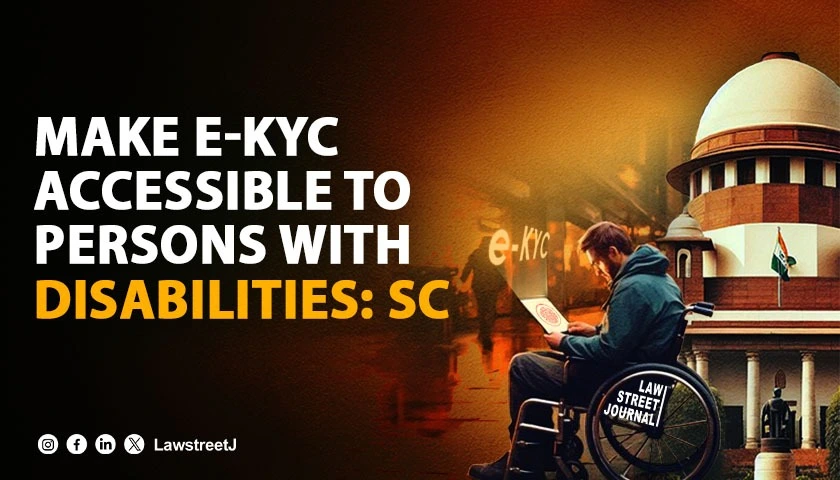NEW DELHI: The Supreme Court on Wednesday declared that e-KYC (digital Know Your Customer) process must be made accessible to persons with disabilities, since digital access is a fundamental right and the State must ensure digital accessibility for everyone.
A bench of Justices J B Pardiwala and R Mahadevan said, "The right to digital access is intrinsic to right to life under Article 21 of the Constitution. It emerges as a distinct component of the right to life and liberty, (Article 21) necessitating that the State proactively design and implement an inclusive digital ecosystem not only for the privileged but also for persons with disabilities, marginalised who are being historically excluded".
Holding that there is a need for change in KYC processes for the disabled, the bench said the petitioners who suffer from acid attacks and blindness have been unable to complete KYC process, due to facial disfigurements.
"The constitutional provisions confer a statutory right on the petitioners to be accommodated in the KYC process. It is imperative that digital KYC guidelines are revised with the accessibility code. In the contemporary era, where economic opportunities etc is through digital access, Article 21 needs to be re-interpreted in light of such technology and the digital divide increases," the bench said.
In its judgment, the court declared that acid attack survivors and persons with visual impairment and disabilities are entitled to the protection under the Rights of Persons with Disabilities Act, 2016.
The judgment was rendered on petitions by an acid attack survivor and another by a person with low-vision.
The acid attack survivor has cited in her petition that she suffered severe eye disfigurement and facial damage.
She claimed, when in July 2023, she approached a bank to open an account. She could not complete the digital KYC process, during which the bank said they needed to capture a live photograph in which she blinked. Due to these difficulties she approached the top court for appropriate directions and orders.
The petition said that the mandatory requirement of proving that a customer is alive under the RBI-regulated process can only be fulfilled when he/she blink before the camera.

















